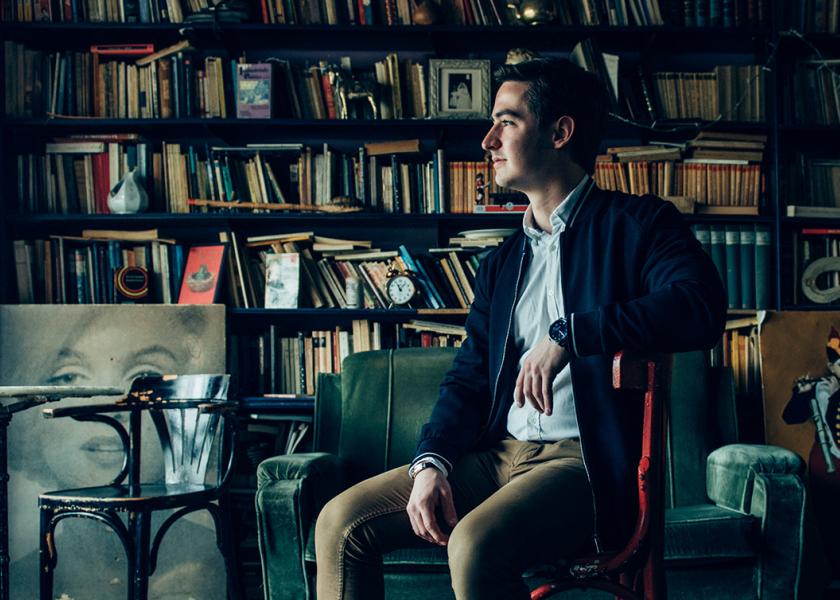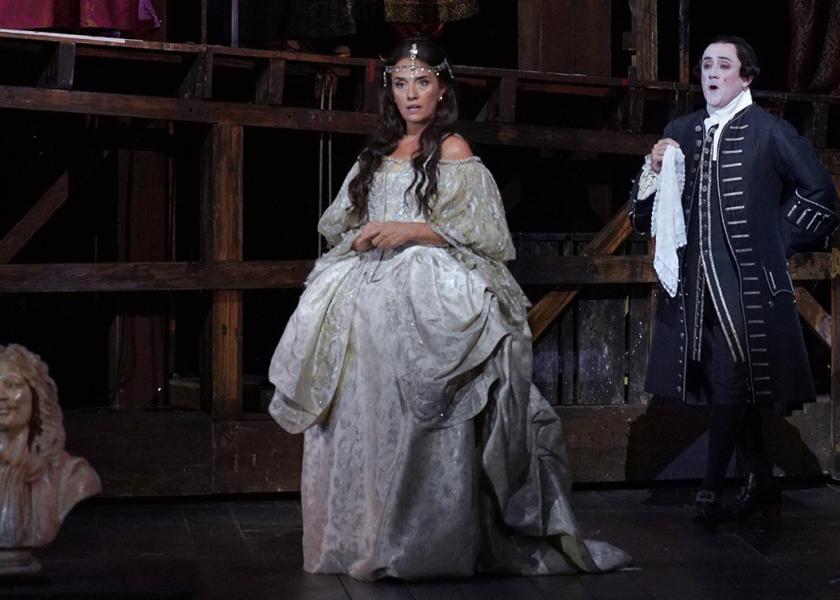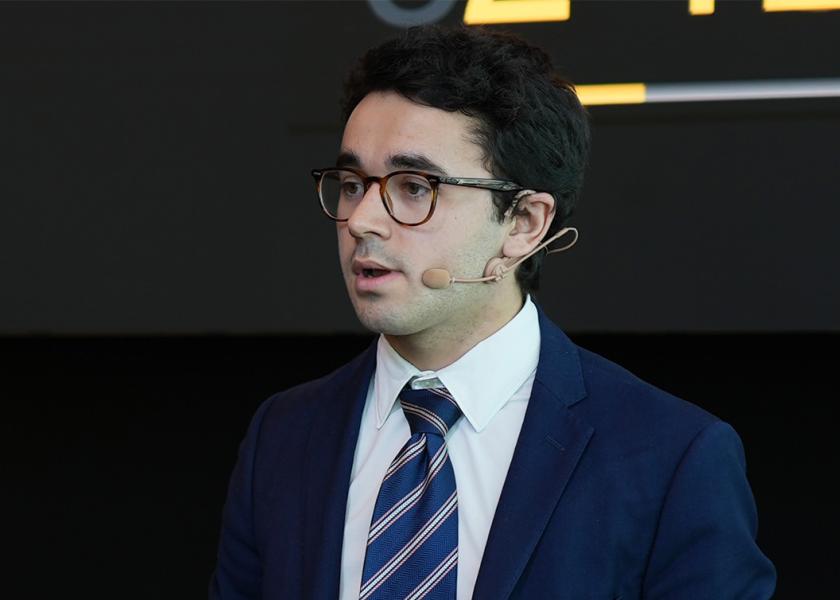Óscar Rodríguez de Vivero
A top-notch speaker
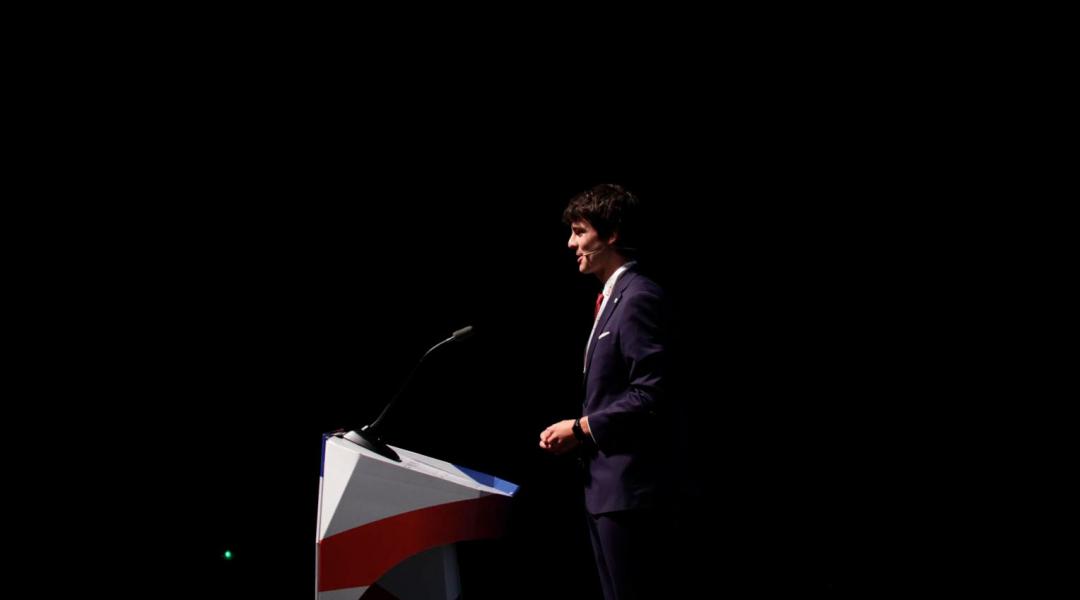
The Spanish University Debate League (LEDU) champion is both physically tall —more than 6 feet— but also high-minded enough, at the tender age of 19, to see reason in a world where irrationality makes too much noise. His next goal is the World Universities Debating Championship in Spanish in Buenos Aires, where he hopes to flaunt his nerves of steel and stage presence to win the title.
At the tender age of 19, Óscar Rodríguez de Vivero (Lugo, 2005) was proclaimed the Spanish University Debate League (LEDU) champion —an event sponsored by Iberia— and is now one step away from becoming the world debating champion. Anyone in his shoes would feel nervous, but this young speaker from Galicia has an ace up his sleeve: his minutes on a basketball court. At the finals, when the ball was burning and wrists were sore, Óscar gave his all on the court, just like he does onstage now during debates. His lack of stage fright, combined with his imposing presence (over 6 feet tall) onstage make it seem like he was born to do this, but this son of a journalist believes more in talent based on hard work: “Talent is the combination of skill and will. That innate aspect, having certain communication skills, plays a big part in public speaking, but you have to invest a lot of time to accomplish what you set out to achieve.” He’s so passionate about debating that he’s launched his own project: “Más Debate is located in Lugo and our goal is to create a community to encourage talent through debate tournaments. We believe that debating can play an important role connecting talent in areas like Galicia.”
Óscar Rodríguez de Vivero, the best speaker of the 2024 Spanish University Debate League. What do you feel when you hear this?
Pride, because it’s the recognition any speaker in Spain longs for. It was only a year ago that I went to my first debate class at University Carlos III in Madrid, so that progression is hard to take in, but I’m thrilled. I started to debate in high school in Galicia and I had already won several awards, but it’s a big change because the university level is much higher.
I’ve been told that your passion for public speaking is a family affair.
Yes, because since I was little, I’ve spent a lot of time at the SER Lugo offices; my father works there, and I used to watch him work. Also, both my mother and grandfather are teachers and writers. So, I’m sure part of my ability to communicate through words comes from them.
The next big day is the World Universities Debating Championship in Spanish in Buenos Aires. Can you see yourself winning the title?
That’s the goal. The World Championship consists of only two encounters, semifinal and final, so you have to give it your all. The fact that you only have two chances doesn’t make it easier because I’ll be facing three of the best Spanish speakers in the world, but I think I have a chance because I’ve just won in Spain and have to make the most of that momentum, of that good form.
“When ‘anything goes’ is part of public debate, we run the risk of not being able to distinguish what is reasonable from what isn’t”
And what role do nerves play at such an important event?
I’m lucky that nerves don’t usually make my life difficult. In fact, I enjoy that feeling. This comes from when I used to play basketball and we’d compete in finals, even the Spanish championships; those were the matches where I played the best because being nervous activates me. I do have to admit that the moments before stepping onstage are the worst, but once I get onstage and see the audience, my nerves calm down.
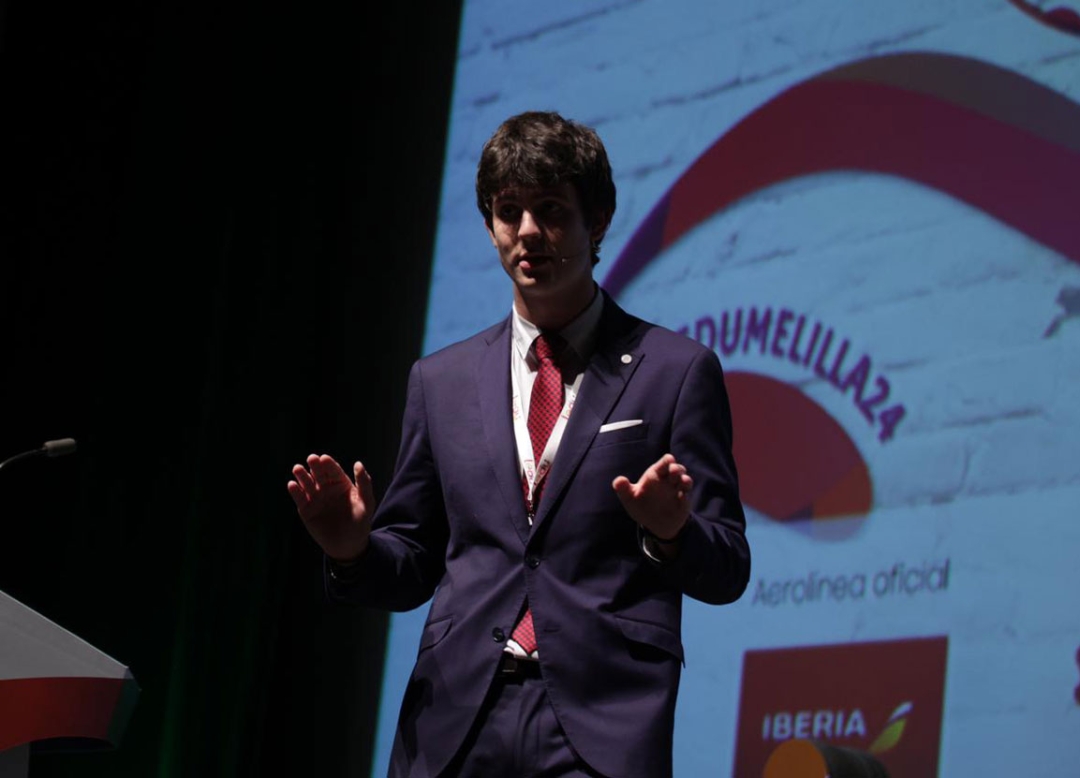
The Teatro Kursaal-Fernando Arrabal in Melilla hosted the final phase of the Spanish University Debate League. © LEDU
In Buenos Aires, you’ll be playing away, and you’ll have to win over the audience with your words, but also with the way you say them. How much acting, even staging, goes into public speaking?
It depends on the competition format, but the World Championship precisely prioritises form and staging over background because they are real debating competitions. That is, staging the speech is essential. Obviously, conveying contradictions makes you lose points, but to win the debate you don’t only have to give grand reasonings.
Acting is so relevant that, sometimes, you have to defend positions you don’t believe in. Do you find this difficult, or do you enjoy opening up to other points of view?
The good thing about debates is that they shy away from black and white thinking. In fact, the questions we’re asked are designed to leave room for reasoning from different perspectives. I’d say that, until now, I’ve debated about topics which I didn’t have a clear opinion on, and I’ve been able to understand both the arguments for and against. It has been rare that I’ve had to defend something that I fundamentally disagree with, but when it has happened, I’ve focused on perfecting the argument and the explanation.
Currently, society is extremely polarised; can calm and reasoned debates be a good antidote?
Absolutely. Understanding is fundamental because few positions are completely irrational and, when they are, debating is precisely the tool that allows us to discern them. When anything goes is part of public debate, we run the risk of not being able to distinguish what is reasonable from what isn’t. When reason reigns, irrationality doesn’t go far.
“Public speaking has an innate aspect, but that natural talent is no use without training”
A recent study declared that 77.5% of university students in Spain have never received any training for speaking in public. Is this an ongoing issue?
Absolutely. We’re lacking in this sense, but that doesn’t mean we’re not doing anything about it. Debating societies have existed for years and new ones are opening all the time. Also, there is growing interest, and more people take part; for example, at the debating society at University Carlos III, we’ve covered all spaces for the first time in years and there’s already 100 of us. There are also other initiatives; if I’m not mistaken, 13 autonomous communities have pre-university debates. There are increasingly more companies, like Iberia, and more public institutions that support public speaking and debating, but we need a bigger push still.
And can public speaking be taught? Tell us three tips to improve.
Yes, of course, public speaking and debating can be taught. I’m a prime example of someone who has learnt to do it. Public speaking has an innate aspect, but that natural talent is no use without training. And I’d give you these three tips. Firstly, the theory: knowledge about certain public speaking procedures —how to start a speech, how to keep the audience’s attention, etc.—is essential. Secondly, confidence: conveying insecurity or nerves to the audience takes away from your speech and this can be overcome with practice. And lastly, I’d say the ability to adapt: to not always give the same speech and know how to adjust it depending on your audience.
